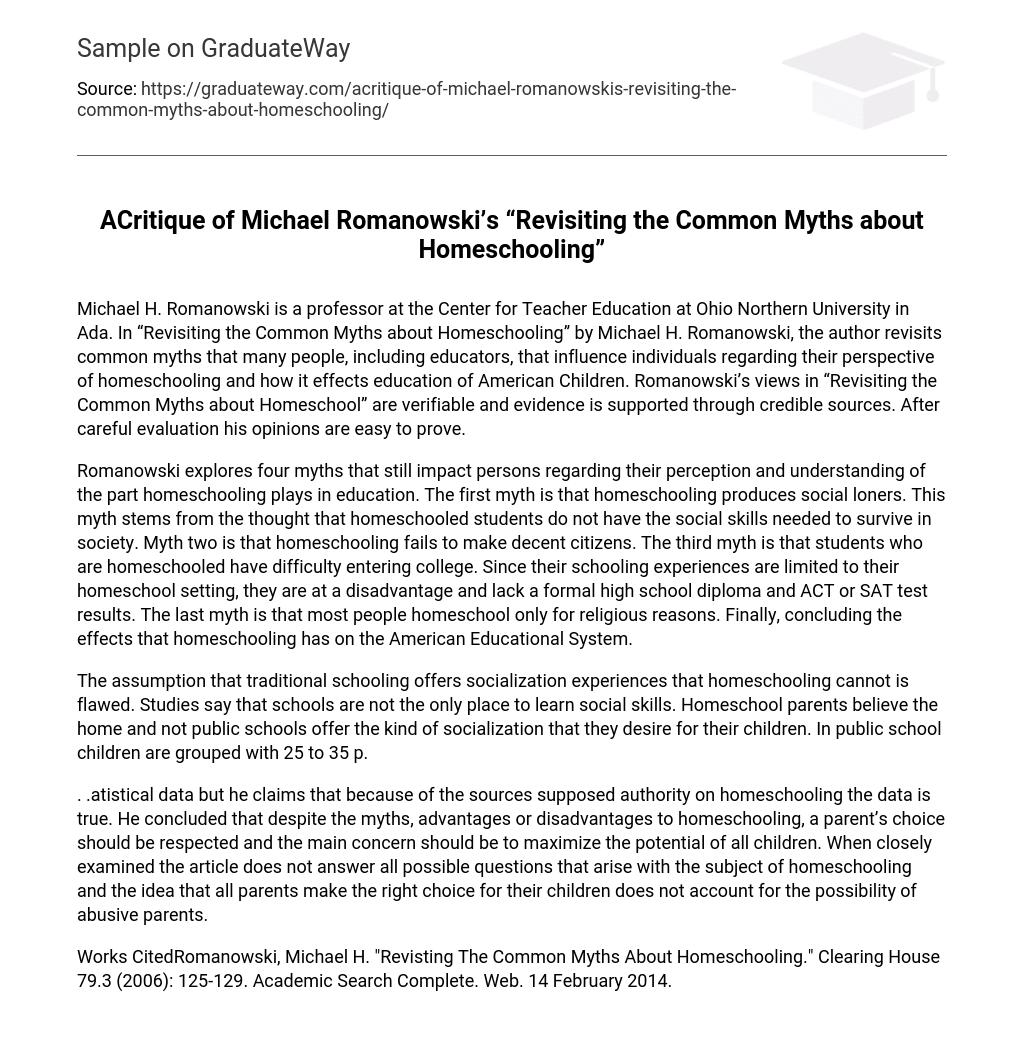Michael H. Romanowski is a professor at the Center for Teacher Education at Ohio Northern University in Ada. In “Revisiting the Common Myths about Homeschooling” by Michael H. Romanowski, the author revisits common myths that many people, including educators, that influence individuals regarding their perspective of homeschooling and how it effects education of American Children. Romanowski’s views in “Revisiting the Common Myths about Homeschool” are verifiable and evidence is supported through credible sources. After careful evaluation his opinions are easy to prove.
Romanowski explores four myths that still impact persons regarding their perception and understanding of the part homeschooling plays in education. The first myth is that homeschooling produces social loners. This myth stems from the thought that homeschooled students do not have the social skills needed to survive in society. Myth two is that homeschooling fails to make decent citizens. The third myth is that students who are homeschooled have difficulty entering college. Since their schooling experiences are limited to their homeschool setting, they are at a disadvantage and lack a formal high school diploma and ACT or SAT test results. The last myth is that most people homeschool only for religious reasons. Finally, concluding the effects that homeschooling has on the American Educational System.
The assumption that traditional schooling offers socialization experiences that homeschooling cannot is flawed. Studies say that schools are not the only place to learn social skills. Homeschool parents believe the home and not public schools offer the kind of socialization that they desire for their children. In public school children are grouped with 25 to 35 p.
. .atistical data but he claims that because of the sources supposed authority on homeschooling the data is true. He concluded that despite the myths, advantages or disadvantages to homeschooling, a parent’s choice should be respected and the main concern should be to maximize the potential of all children. When closely examined the article does not answer all possible questions that arise with the subject of homeschooling and the idea that all parents make the right choice for their children does not account for the possibility of abusive parents.
Works CitedRomanowski, Michael H. “Revisting The Common Myths About Homeschooling.” Clearing House 79.3 (2006): 125-129. Academic Search Complete. Web. 14 February 2014.





